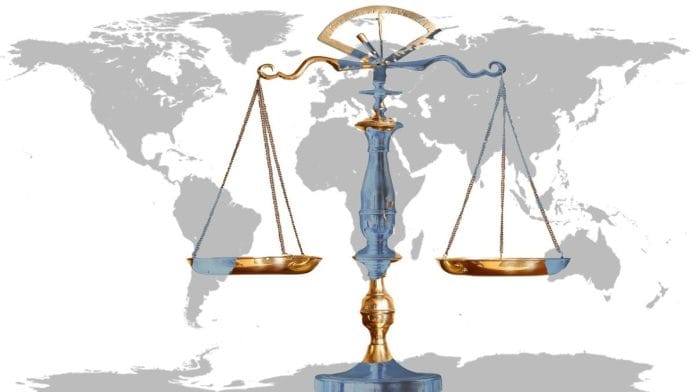Thank you dear subscribers, we are overwhelmed with your response.
Your Turn is a unique section from ThePrint featuring points of view from its subscribers. If you are a subscriber, have a point of view, please send it to us. If not, do subscribe here: https://theprint.in/subscribe/
Much has been made about the fact that International Law (IL) is dysfunctional. That is perhaps true in today’s world till some extent but what was the situation when United Nations was in its formative years. This article looks at the year 1968 and how much IL did or did not exist back then by fast forwarding it to 2020. IL did survive the inception of a lot of nation-states, and ultimately in the UN umbrella when these nation-states came they in some ways proved to be the master of IL. In 1968 there were more than 120 nation-states, 120 head of states making IL and 120 value judgments of each other’s behavior as they did respond to each other. Till 1968 the change in IL was little and unprecedented despite the consequences of the nation-states being proliferated (new countries created). Inception of countries did impact IL with respect to a reflection of the similar quality as well as attitude. All of them were “have-nots”, which did question in an inevitable manner the law which did appear to take side of the “haves” as well as seek new law that was going to initiate and expedite changes, having to grant them an affordable status symbol as well as giving them a bigger pie of the resources in the globe. These countries had a specific animosity in standing against colonial rule as well as were not tolerant of laws as for them it did stand in their way to end white colonial sentiment in the colored continent. Colored continent meant that could be against the claim of their behaving as successive government with respect to the undertaking of the earlier political dispensation for example the statement of policy of the government of Tanganyika, U.N. Doc. A/CN.4/160, Annex II, app. (1963). Like earlier, South Africa was quite worried with respect to its treatment on the basis of race, so a law was passed to prohibit such practices inside South Africa. Such countries when they had just come out after their inception as a sovereign nation-state, then these countries perhaps were doubtful of laws as well as obligation to obstruct the liberty of carrying out programs which are of the politico-economy type. For example, the obstruction to be cancelling the international concession or the claim of human rights for ‘political prisoner’. Especially in the UN, with respect to the matter of the core fare, attitude which had an impact on the law. So, their special concern was apart, the new nation-states were like older nation-state type; they were not homogenous in nature; the respective national interest, as they were seen varying hugely. Some were innovative leaders (like PM Jawaharlal Nehru), in that some of them were orthodox; they did work as cultivators in their area of influence, while some were interested in doing a spectacular role on the international stage. Not all nation-states were equally caring for IL; many of them did agree almost on nothing whether or not to have a new law and what they could have done with it. For sure alike the 2020s back then in 1960s no country was interested in increasing the catchment area of IL through homogenous norms and standard which can apply to all. As new nation-states kept coming up, it was even more difficult to make IL that was acceptable to all because IL works when member states of the UN value and adhere to it. So, a common agreement among all the countries on letter and spirit of IL is essential. Today’s 2020s IL is a mixed bag that is the positives perhaps outweigh the negatives. Judgments of the ICJ are binding under Article 59 of the Statute. The binding effect of the international award is essentially based on the agreement of the parties, on the pacta sunt servanda rule reflected in the procedural rule: arbitration agreement, arbitration clause, binding arbitration treaty, Statute of the Court or any other instrument. States accepting the jurisdiction of the Court undertake to comply with the award in good faith, in accordance with Article 94 of the Charter of the United Nations, which so provides. Res judicata; in addition to being binding, judgments are final and not subject to appeal, as established in Article 60 of the Statute, although they may be interpreted or revised. The judgments of the Hague Court, although binding and final, have effect only as between the parties to the dispute, i.e. they have a relative scope, as deduced from Article 59 of the Statute of the Court. However, in the times to come UNSC has to be much more representative rather than represent the interest of the P5 only. So, major power like India should be in UNSC to counterweigh overwhelming Chinese presence.
These pieces are being published as they have been received – they have not been edited/fact-checked by ThePrint


